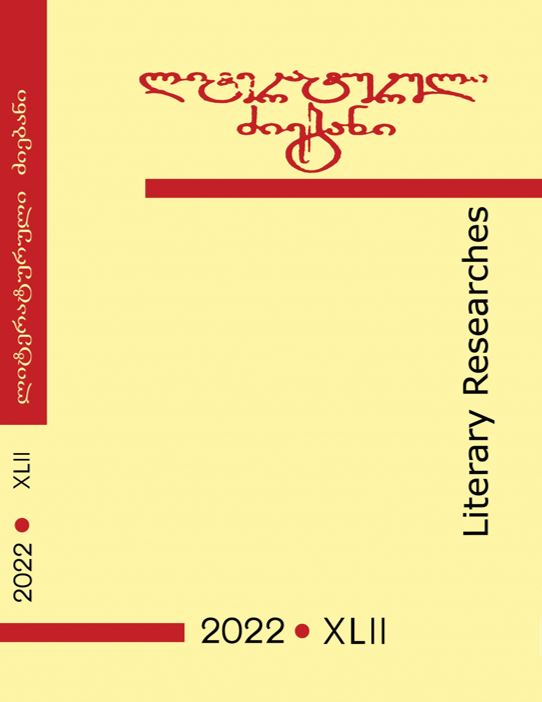გამოქვეყნებული 2022-04-30
საკვანძო სიტყვები
- აკაკი წერეთელი,
- ცენზურა,
- აკრძალული თხზულებანი,
- ასი წლის ამბავი,
- არქივი
როგორ უნდა ციტირება
ანოტაცია
No author in Georgian literature has as many unpublished works as Akaki Tsereteli. The interaction of the poet with Tsarist censorship is a subject of special interest. There are hardly any pieces in Akaki’s works of literature that is not affected by censorship: distorted, remade or even banned.
Recent studies of the poet’s writings stored in the archives have brought a great deal of fresh and fascinating information to the poet’s works and biography.
Among Akaki Tsereteli’s works “rejected” by the Tsar’s censorship and the Soviet conjuncture the paper analyzes three works: the poem “Voice”, the journalistic letter “Truth” and the poem “The Centennial Story”. As a result of the research, it has been established that they represent the same work of different genres. None of the above listed works were published during Tsereteli’s lifetime. After the death of the poet, several stanzas of the poem “Voice” were printed without reference to the author, and also only the first painless chapter of the poem was printed, and “Truth” was not given the honor of being published even after the poet passed away. The question arises, what in these three essays so frightened both the tsarist censorship and the Soviet conjuncture.
In his writings, Akaki considers the century-long Russification policy that raged in Georgia as the cause of the national degeneration of Georgians. All these misfortunes that the annexation of Georgia to Russia brought up are described in these three pieces. The poet claims that Russians are ferociously fighting against religion with various methods, purposefully causing people to lose their faith; the nation does not understand the Russian-language liturgy introduced in the church, no one can succeed without denying Georgian identity, the Georgian language is excluded from the seminary and students are forbidden to speak their native tongue. All this is necessary for Tsarism in order to quickly assimilate Georgia with Russia. The poet sadly concludes that if the Georgians were able to maintain their identity in the “Tatar era” is now lost. Such passages are found throughout all three of the works, thus it is no longer surprising that they were banned.
The themes and conclusions discussed in Akaki Tsereteli’s unknown literary works are relevant to this day, they resonate with modern times, and therefore their publication is essential.

